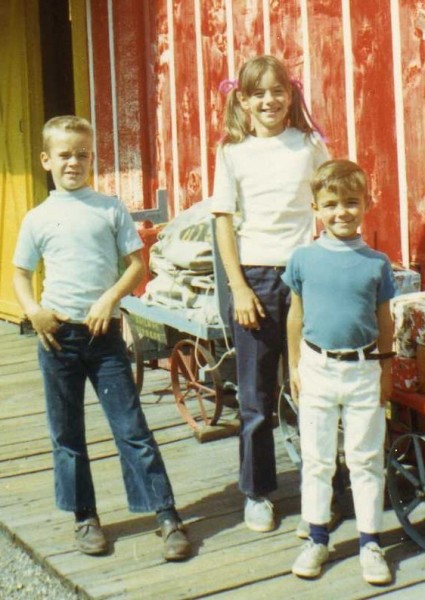Advertisement
The Remembrance Project: Bernard Baran
ResumeBernard Baran, known as Bernie or "Bee" to his family and friends, died September 1 in Fitchburg. He was 49 years old. In 2006, after more than two decades of imprisonment on false charges, he walked into a world — full of cell phones, sensor-generated sink faucets, and colors other than incarceration grey and blue — and he started over.
There’s a family photo of a young Bee on his way to an amusement park with his siblings: a rare outing in a household that couldn’t afford extravagance. His sister and brother are wearing practical jeans, prepared for happy chaos. Bee, about seven, is wearing impeccable white pants and a coordinated turtleneck he’d tucked in.

As a boy, he'd wanted to be an actor, or a dancer, or briefly, a baseball player (which lasted until he saw the ball coming towards him for the first time). The small town he lived in rejected young, openly gay men, and his mother feared for him. Early on, he had a gift for others in pain. His mother never knew he used to let a mistreated friend into his window at night, and tuck her under his bed with blankets and pillows. He was like that.
He also had a gift for reaching children, and was living with his older sister so he could help to raise hers. He was working in an early childhood development center — his very first job — when he was falsely accused of sexual assault. He was 19 years old.
“It sometimes can get very lonely,” Bee wrote from Bridgewater State Prison in 2002. “It can get heartbeat lonely.” At the time, he was serving three consecutive life sentences for child molestation. He’d been offered a plea bargain of five years in exchange for admission of guilt, but turned it down.
Mental-health specialists insisted he was in denial. Prison was filled with beatings the guards permitted — and worse, things he wouldn’t tell his family. “He had the pain,” his mother said, “but he didn’t want to give the pain.”
Then, in 2006, in a scathing 79-page finding, a judge overturned the conviction. After his release, Bee wanted a full set of teeth to replace the ones he had lost to violence and dental-student extractions. He settled down with his boyfriend and a beloved niece, spoke in law-school classes and Innocence Project conventions, and worked as a landscaper.
Clients requested him for the sheer pleasure of his friendliness. He taught his lawyer’s admiring son how to play prison basketball — you step on the side of the other guy’s foot, and no fail, they’ll release the basketball. He and his mother liked to run up and down the aisles of large stores at Christmas time, pressing all the buttons that activated the holiday lights — simple crazy joys.
No one knew he had cardiac illness when he collapsed in his home. The second sudden and unjust death followed the long first one.
He had the pain, but he didn’t give it. Sometimes, though, it broke through, almost like a form of freedom. For 21 years, the only place Bee could safely weep was in the shower. After his release, when he had to, he could weep in the open.
Did you know Bernard Baran? Share your memories in the comments section.
This segment aired on December 23, 2014.